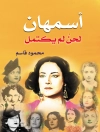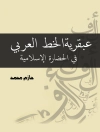“I am Jugoslovenka” argues that queer-feminist artistic and political resistance were paradoxically enabled by socialist Yugoslavia’s unique history of patriarchy and women’s emancipation. Spanning performance and conceptual art, video works, film and pop music, lesbian activism and press photos of female snipers in the Yugoslav wars, the book analyses feminist resistance in a range of performative actions that manifest the radical embodiment of Yugoslavia’s anti-fascist, transnational and feminist legacies. It covers celebrated and lesser-known artists from the 1970s to today, including Marina Abramovic, Sanja Ivekovic, Vlasta Delimar, Tanja Ostojic, Selma Selman and Helena Janecic, along with music legends Lepa Brena and Esma Redžepova.
“I am Jugoslovenka” tells a unique story of women’s resistance through the intersection of feminism, socialism and nationalism in East European visual culture.
Table des matières
Introduction: Jugoslovenka: the unique position of Yugoslav women during and after socialism
1 Jugoslovenka’s body under patriarchal socialism: art and feminist performance politics in Yugoslavia
2 Marina Abramovic, Lepa Brena and Esma Redžepova: socialist nation, Orientalism, and Yugoslav legacy
3 Queer Jugoslovenka
4 Jugoslovenka in a sea of avant-garde machismo: a feminist reading of NSK
5 The last generation of Jugoslovenkas: diverse forms of emancipatory resistance and performance strategies
Conclusion: Jugoslovenka: a wide-ranging model for feminist performance politics in art and culture
Index
A propos de l’auteur
Jasmina Tumbas is Associate Professor of Contemporary Art History and Performance Studies at the University at Buffalo












